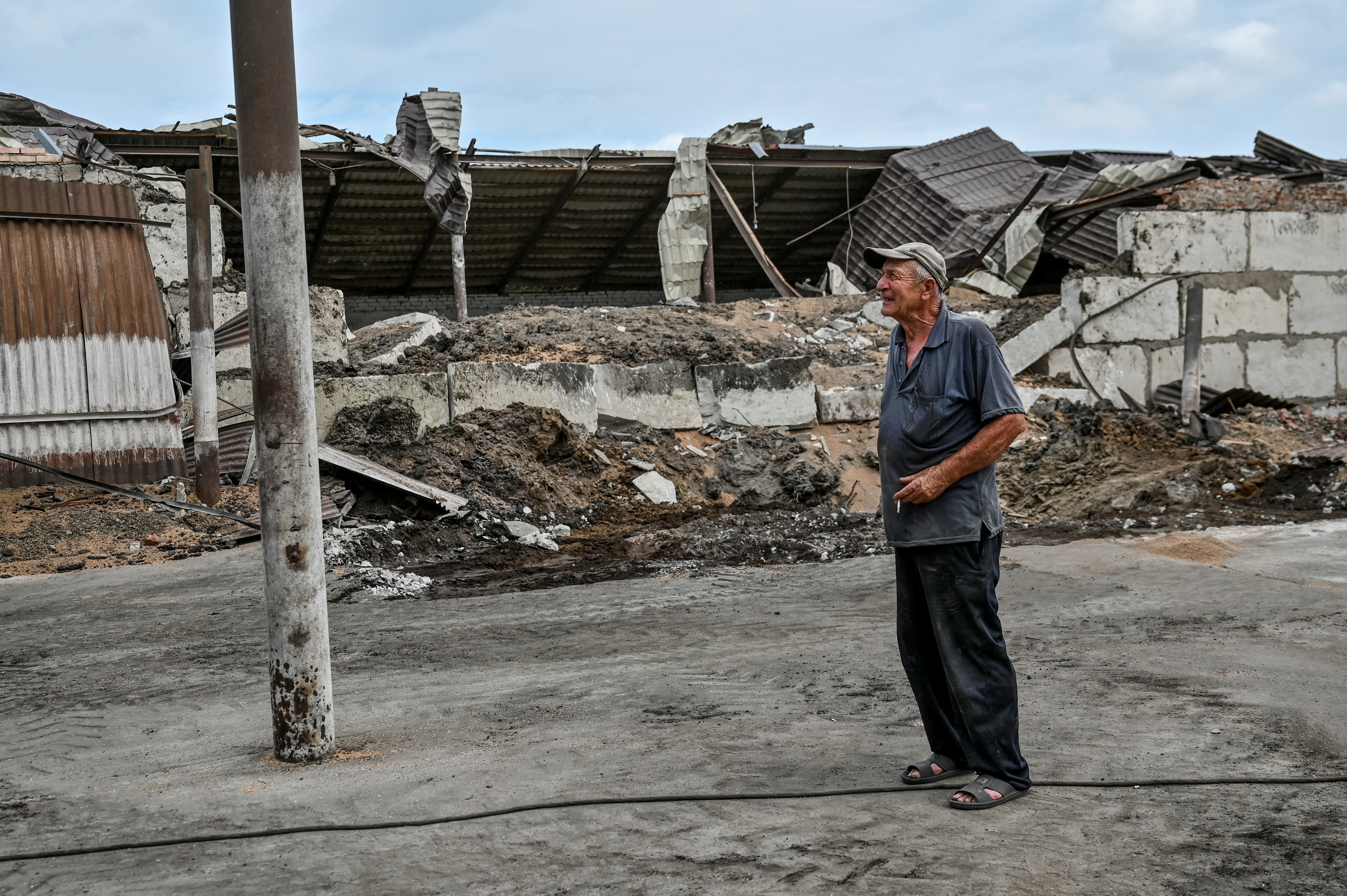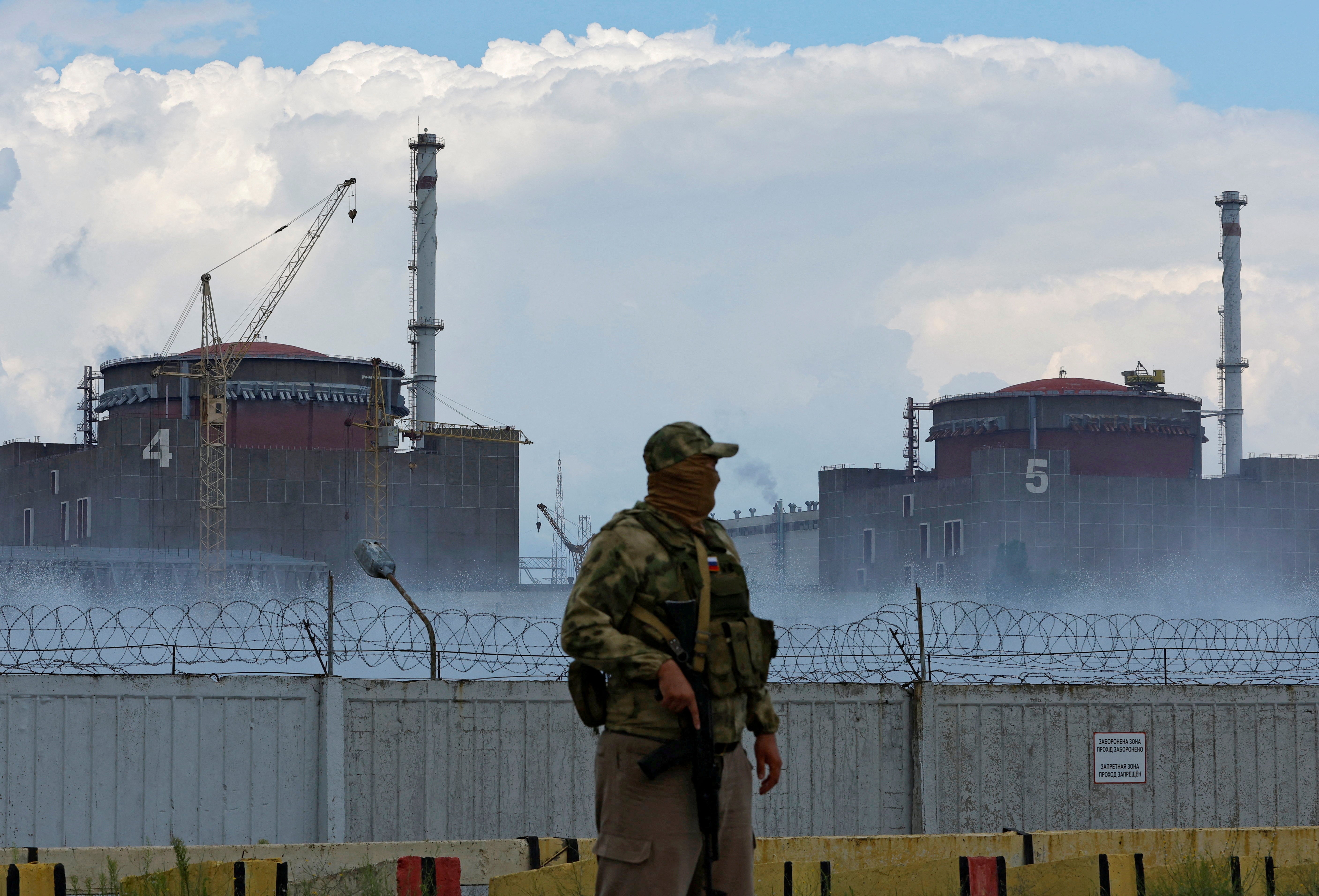Russian troops ‘firing missiles from Europe’s largest nuclear plant’ amid warning of Chernobyl-style disaster
UN chief of atomic energy says situation ‘completely out of control’
Your support helps us to tell the story
From reproductive rights to climate change to Big Tech, The Independent is on the ground when the story is developing. Whether it's investigating the financials of Elon Musk's pro-Trump PAC or producing our latest documentary, 'The A Word', which shines a light on the American women fighting for reproductive rights, we know how important it is to parse out the facts from the messaging.
At such a critical moment in US history, we need reporters on the ground. Your donation allows us to keep sending journalists to speak to both sides of the story.
The Independent is trusted by Americans across the entire political spectrum. And unlike many other quality news outlets, we choose not to lock Americans out of our reporting and analysis with paywalls. We believe quality journalism should be available to everyone, paid for by those who can afford it.
Your support makes all the difference.Russia has been accused of firing missiles from the largest nuclear power plant in Europe, despite warnings that retaliation could cause a Chernobyl-style disaster.
The Zaporizhzhia plant was captured by Russian forces in early March in the opening stage of the war, though it is still being run by Ukrainian technicians.
It is now reported that heavy artillery is being used next to Zaporizhzhia to blast missiles across the River Dnieper in southern Ukraine.
Though Russia has denied launching strikes from the plant, reports from Ukraine suggest military trucks were seen entering and exiting the power station.
Experts say it is “highly likely” the trucks are unloading ammunition.
It comes as the head of the International Atomic Energy Agency (IAEA) warned that the situation at Zaporizhzhia “is completely out of control” and is getting more dangerous each day.
Rafael Grossi said that “patchy” communication from the Zaporizhzhia facility and his organisation’s inability to visit the site were deeply concerning.

“What is at stake is extremely serious and extremely grave and dangerous,” he said.
The power plant was experiencing a “catalogue of things that should never be happening in any nuclear facility”, the IAEA’s director general stressed.
“And this is why I have been insisting from day one that we have to be able to go there to perform this safety and security evaluation, to do the repairs and to assist as we already did in Chernobyl,” he said.
As well as strikes reportedly being launched from the plant, the power station has also been hit by attacks that both sides have blamed on each other.
Ukraine’s state nuclear power firm said Russian forces damaged three radiation sensors at the facility in renewed shelling on Saturday night, wounding a worker with shrapnel.

Energoatom said the latest Russian rocket attacks hit the plant’s dry storage facility, where 174 containers with spent nuclear fuel were stored in the open air.
“Consequently, timely detection and response in the event of a deterioration in the radiation situation or leakage of radiation from containers of spent nuclear fuel are not yet possible,” it said.
Meanwhile, Moscow said Ukraine had struck the Russian-installed administration of occupied Enerhodar, where the plant’s employees live, using a 220-mm Uragan multiple rocket launcher system.
Mr Grossi said Friday’s shelling showed the risk of a nuclear disaster. Those shells hit a high-voltage power line, prompting the plant’s operators to disconnect a reactor despite no radioactive leak being detected.
“Russian nuclear terror requires a stronger response from the international community – sanctions on the Russian nuclear industry and nuclear fuel,” Ukrainian president Volodymyr Zelensky wrote on Twitter.




Join our commenting forum
Join thought-provoking conversations, follow other Independent readers and see their replies
Comments